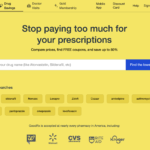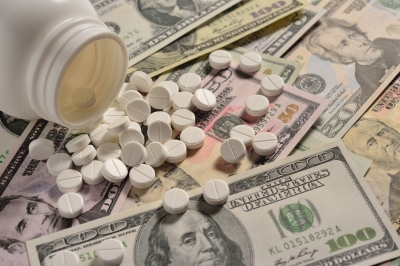A General Overview: How to Save Money on Prescription Drugs
Prescription drugs play a vital role in maintaining the health and well-being of many Americans. However, their rising costs can put a strain on household budgets.
Fortunately, there are various strategies and resources available to help you save money on prescription medications. In this general overview, we’ll explore practical tips and actionable advice to help you cut down on your prescription drug expenses.
How to Save on Prescription Drugs
- Choose Generic Drugs:
One of the simplest ways to save money on prescription medications is by opting for generic drugs. Generic drugs are bioequivalent to their brand-name counterparts but are significantly cheaper. When your doctor prescribes a medication, ask if a generic alternative is available. By doing so, you can potentially save up to 80% on your prescription costs.
- Compare Drug Prices:
Prices for prescription drugs can vary widely from one pharmacy to another. Before filling your prescription, take the time to compare prices at different pharmacies in your area. Many online tools and mobile apps can help you find the most affordable options. Additionally, consider mail-order pharmacies, as they often offer lower prices and convenient home delivery.
- Utilize Prescription Discount Cards:
Prescription discount cards are an excellent resource for saving money on prescription drugs. These cards are typically free and can be obtained from various sources, such as your healthcare provider, nonprofit organizations, or online platforms. Simply present the card at the pharmacy, and you may receive substantial discounts on your medications.
- Explore Patient Assistance Programs:
Many pharmaceutical companies offer patient assistance programs (PAPs) to help individuals who cannot afford their medications. These programs provide eligible patients with free or discounted prescriptions directly from the manufacturer. Visit the websites of pharmaceutical companies or consult with your healthcare provider to determine if you qualify for any PAPs.
- Consider Pill Splitting:
Pill splitting involves dividing higher-dose medications into smaller doses. This strategy can help you save money, especially if the cost of a higher-dose tablet is similar to that of a lower-dose tablet. Consult your doctor or pharmacist before attempting pill splitting to ensure it is safe and appropriate for your medication.
- Check Your Health Insurance Coverage:
Review your health insurance policy to understand what prescription drug benefits are included. Familiarize yourself with the formulary, which lists the medications covered by your insurance plan. If a prescribed drug is not covered or requires a high copayment, discuss alternative options with your doctor or insurance provider.
- Discuss Therapeutic Alternatives:
In some cases, therapeutically equivalent medications can be equally effective but more affordable. Talk to your doctor about potential therapeutic alternatives or lower-cost options that can meet your treatment needs. By considering these alternatives, you can save money without compromising your health.
- Seek Out Generic Drug Assistance Programs:
Several pharmacies and retail stores offer generic drug assistance programs. These programs typically provide a 30-day supply of commonly prescribed generic medications at discounted prices. Contact your local pharmacy or retail store to inquire about any such programs in your area.
- Practice Medication Adherence:
Adhering to your prescribed medication regimen can help prevent costly health complications and hospitalizations. Follow your doctor’s instructions carefully and take your medications as prescribed. Avoid skipping doses, as this can lead to worsening health conditions, potentially requiring more expensive treatments.
Wrap Up
Saving money on prescription drugs is possible with careful planning and knowledge of available resources. By choosing generic drugs, comparing prices, utilizing discount cards, exploring patient assistance programs, and discussing alternative options with your healthcare provider, you can significantly reduce your prescription drug expenses.
Remember, your health should never be compromised, so consult with your doctor or pharmacist before making any changes to your medication routine.
Stay proactive, informed, and committed to achieving both optimal health and financial well-being.
Check a few of our Related Posts below for specifics on some of the suggestions in the post above.



